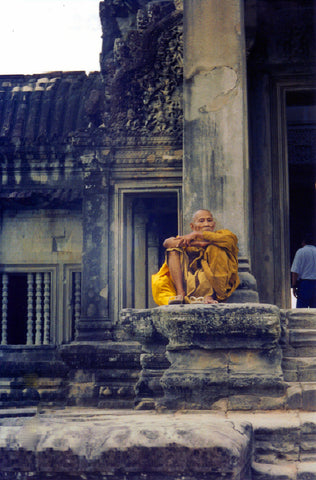Your Cart is Empty
Free Shipping for orders over $49 in Australia, $199 IN NEW ZEALAND/USA/CANADA AND $249 REST OF THE WORLD
Free Shipping for orders over $49 in Australia, $199 IN NEW ZEALAND/USA/CANADA AND $249 REST OF THE WORLD
Add description, images, menus and links to your mega menu
A column with no settings can be used as a spacer
Link to your collections, sales and even external links
Add up to five columns
Add description, images, menus and links to your mega menu
A column with no settings can be used as a spacer
Link to your collections, sales and even external links
Add up to five columns
Where would you like to go today: The Pushkar Camel Fair
by Linda Heaphy May 02, 2017
Pushkar is a small town nestled in the hills north west of Ajmer next to Pushkar Lake in the state of Rajasthan, India. Considered one of the five sacred dhams or pilgrimage sites for devout Hindus, the name Pushkar means "born from a flower", which relates to the story of the town's creation as a place for Lord Brahma to conduct his sacred ceremony of devotion.

A full view of Pushkar from the surrounding hills
Pushkar is considered to be one of India's oldest existing cities, although much of its architecture is relatively recent and modest, if not somewhat dreary, in it's construction. As a holy city, no meat, dairy or alcohol may be served within its boundaries. Locals servicing the extensive overseas and domestic tourist markets deal with these culinary restrictions by becoming inventive with food and drink menus, however the fact is there are only so many ways you can serve potatoes and beans. This can make it a difficult place for Westerners in particular to spend any great amount of time in unless you a teetotaling vegan - and in fact the town has become somewhat of a destination for the dope and dreadlock brigade. If you're not one of these the town can easily be taken in within a couple of hours, and this includes shopping. What you will see here for sale are exotic goods that come straight out of the adjacent Thar Desert - Rabari and nomadic tribal weavings, camel trappings and textiles embroidered in bright colours with gleaming mirror-work borders, and also some rather nice antique tribal jewellery. However the savvy traveler should note that there are no bargains to be had, even for seasoned buyers. And the touting is almost unbearable. Pseudo-Hindu spirituality is on sale here, with every teenager in town trying to flog you a holy thread, garland, henna design or blessing of some sort, while their seasoned older relatives haunt the areas around the lake and the temples, concentrating on the domestic tourists and pilgrims who are far more likely to fork out big money for a blessing.

Pushkar's lake
ALL of this changes during the annual Pushkar Camel Fair. One of the world's largest camel fairs, the town's modest population of 15,000 swells to over 200,000 people, many of whom bring their livestock to sell or trade. The fair runs for five days, during which time the camels are washed and attractively shorn, then lovingly bedecked with silver jewellery and beaded trappings. Anticipated fair events include camel racing and the moustache and bridal competitions, while the ladies flock to stalls full of bracelets, clothes, textiles and fabrics. In recent years the fair has also included an exhibition cricket match between the local Pushkar club and a team of random foreign tourists. In the evenings there is music, magic shows and exhibitions of dancing and theatre.

The famous camel fair
Where to stay:
The town is well used to tourists of both the domestic and international sort, and boasts a plethora of accommodation types ranging from the most basic to four star (relative) luxury. Check out Trip Advisor for the lowdown before you arrive, however you can take potluck if you are traveling outside of fair times - and don't hesitate to bargain hard for your room rate. If you're traveling within fair times, booking ahead is imperative and you can expect to pay up to 1000 times the low-season rate.

Another view of the lake
When:
According to the Hindu calendar the Pushkar Fair commences in Nawami (Ninth Moon) and ends in Purnima (Full Moon) in the month of Kartika, which can be in October or November depending on the Moon calendar. If it's camels and desert nomads you want to see, the best time to come is at least a week or so before the final weekend. By the time of the full moon that signifies the end of the fair, the majority of herders have packed up and gone home (unless the local tourist office has managed to induce them to stick around with the lure of free fodder), leaving behind crowds of Indian pilgrims to enjoy the religious celebrations and foreign tourists to gawk at them.
How to get there:
Air/Car - The nearest airport from Pushkar is Jaipur, 146 km away. We generally hire a private car from Jaipur to Jodhpur and divert to spend a few hours in Pushkar on the way, leaving our driver to look after our luggage and the car while we explore and stop for lunch. The cost varies considerably depending on who you arrange hire with and what sort of vehicle it is - while the Ambassador non a/c is the cheapest, its not a vehicle I'd recommend for the 7-8 hour journey, especially if you have lots of luggage and are traveling with more than 2 people.
Bus - Pushkar is only 11 km from main Ajmer bus stand. Rajasthan Roadways run buses from Jaipur to Ajmer every 15 minutes, some nonstop. The roads are very good, and it takes around 3 hrs from Jaipur, not much longer than the journey takes by car. From Ajmer take a taxi or a local bus.
Train - The nearest railway station is at Ajmer, which is on the Broad Gauge and hence connected to all the metro cities of India. From Ajmer take a taxi or a local bus.

Pushkar devotees
Leave a comment
Comments will be approved before showing up.
Also in Travel

Where Would You Like to go to Today: Kashgar's Hotel Classification System
by Linda Heaphy May 22, 2017
Read More Articles
About the Author
- Linda has a Honours degree in Marine Biology and a PhD in Ecology from the University of NSW, Australia. She has travelled extensively and is a passionate writer on subjects as diverse as the role played by women throughout history, tribal communities and their customs, symbology and ethnology, talismans and their history. Occasionally she also writes about her travel experiences, her new life on a 25 acres in the Northern Rivers region of northern Australia and her black miniature poodle Phoenix. She is currently writing her first book on talismans.
About Us
-
The Kashgar Philosophy

Kashgar began through a love of travel.
In 1989 my father Bernard packed in his house painting business and set off for two years on a backpacking trek to the remotest corners of the world. When he finally arrived in the oasis city of Kashgar, China, he was so impressed with its history that he decided to start a new life collecting and selling exotic goods from all over the world. For 2000 years the legendary city of Kashgar was a melting pot of ideas and a key trading post on the historic Silk Road. It was this unique combination of philosophy and trade that my father wanted to recreate at home.
Starting in markets in 1991, he opened his first store in the Sydney suburb of Newtown in 1994. I gave up my own career as a government scientist to join him in 2000 and soon convinced my partner Ian to join us in what was to become the Family Business.
Today our version of Kashgar stocks a hugely diverse range of furniture, rugs, textiles, antiques, handicrafts and jewellery sourced from over twenty different countries including India, Nepal, Tibet, China, Thailand, Burma, Laos, the Philippines, Vietnam, Mexico, Peru, Turkey, Palestine, Syria, Afghanistan and Turkmenistan. Our collection includes contemporary and tribal silver and gold jewellery, a unique range of headhunting curios, antique Buddhist relics and a collection of one-off necklaces, earrings and bracelets that I design and create myself using the beads and jewellery making techniques of ethnic minorities from around the globe.
Kashgar is a philosophy as well as a store. We are committed to supporting traditional artisans and small village communities by selling authentic handcrafted goods which are personally collected by us. By supporting traditional methods of design and production we hope to encourage local cottage industries which have a low impact on the environment and help ethnic minorities maintain their self-sufficiency into the 21st Century. We are particularly committed to assisting women around the world and to this end have worked with several organisations including the Hua Bin Women's Union of Vietnam, the East Timorese Women's Association and Tikondane in Zambia. Time honoured means of craftsmanship and traditional ways of life are disappearing as people all over the world give up their identity in favour of jeans and T-shirts. We see our trade as a means of staving off the inevitable encroachment of the 21st century, assisting communities to decide for themselves which parts of the western world they wish to incorporate (medicine, education) and which they wish to reject (prostitution, drug production, begging and servitude to warlords). We encourage our customers to think of the handicrafts and artifacts they buy from us as an investment: a piece of history and a way of life that may soon be gone forever.
Kashgar has recently closed its retail outlet and gone completely online.
In the past our pieces appeared in many movies including The Hobbit, Mission Impossible 2, Queen of the Damned, Scooby Doo, Moulin Rouge and Wolverine, and in many televisions series, as well as in plays, commercials and exhibitions. We've found special pieces for individual customers as well as for film sets, event management companies, hotels, businesses, consulates and embassies. The uniqueness of our stock means that we are also very appealing to interior and fashion designers with a taste for the exotic.
There is something for everyone at Kashgar - collectors, the curious, those looking for a special present or for something unique to adorn the home. Most of our items are one-off specialties; other pieces we only stock in small quantities so as to continuously offer a wide and ever-changing range of interesting products. We are also packed with ideas for decorating home and work premises that will challenge your established concepts of design and storage.

Please enjoy - Linda Heaphy
Become a Kashgar nomad and join our mailing list...
Sign up to get the latest on sales, new releases and more …




